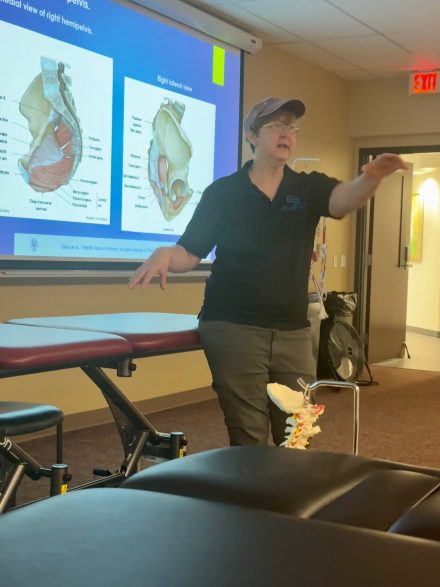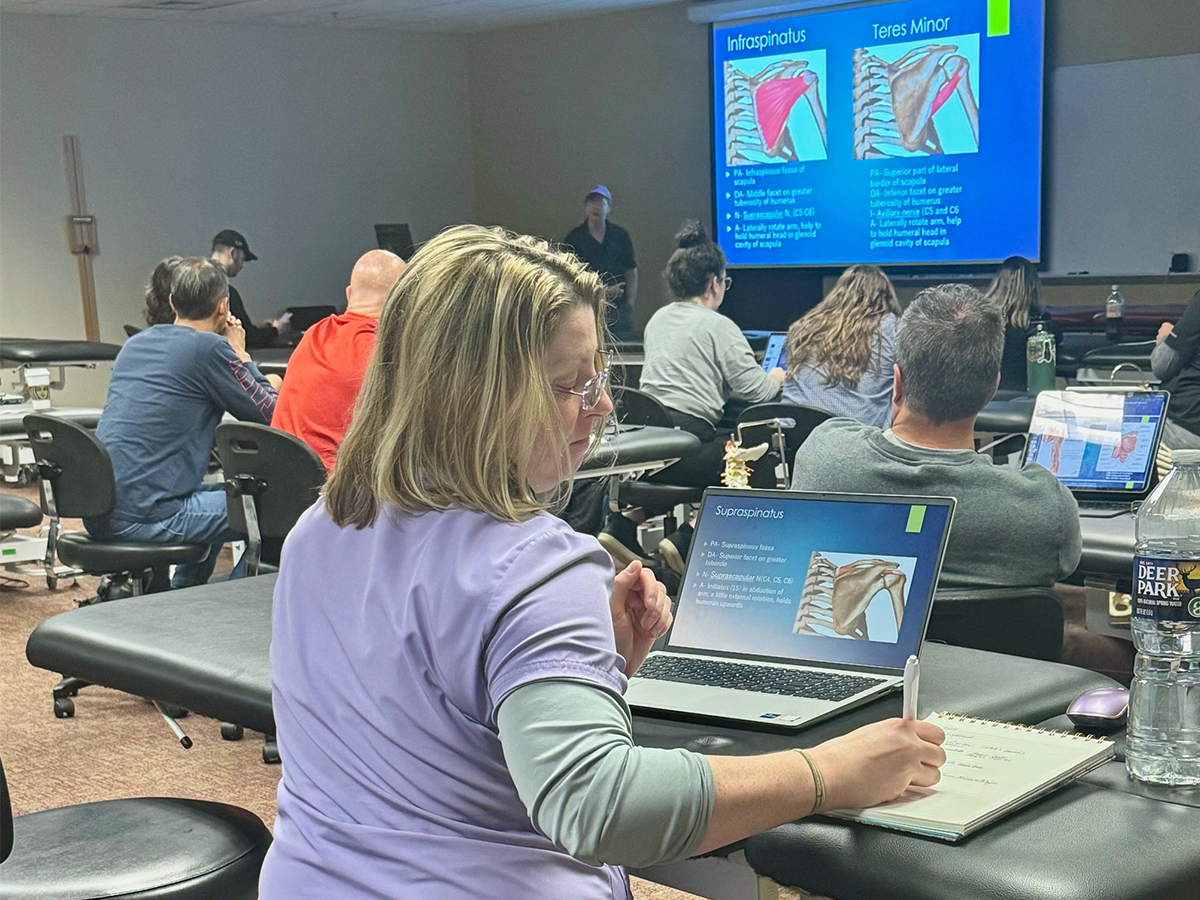Twenty-five health care professionals from across North Carolina convened at Elon for hands-on continuing education to benefit student scholarships
On Saturday, Aug. 24, the Elon University School of Health Sciences welcomed 25 health care professionals to the Gerald L. Francis Center for a daylong continuing education course.
The course, Human Donor Anatomy Prosection: Neck, Trunk, Upper & Lower Extremities was led by Monica Zimmerman and provided opportunities for healthcare professionals to review anatomy in classroom and laboratory environments to enhance clinical knowledge.
This course brought together multiple units across Elon to advance the mission of providing cutting-edge continuing education experiences to healthcare providers: the Department of Physical Therapy in the School of Health Sciences, the Anatomical Gift Program which supplied the “Silent Teachers,” and the Office of Professional & Continuing Studies which provided the operational and administrative support in partnership with the School of Health Sciences. Gratitude goes to the individuals who donated their bodies to the Anatomical Gift Program for the advancement of healthcare education. All course proceeds went to the Janet Cope Scholarship providing educational funds for Elon Physical Therapy students.
“The School of Health Sciences is grateful for collaboration between units at Elon that creates a unique, interdisciplinary approach to supporting healthcare professionals,” said Maha Lund, dean of the School of Health Sciences. “By combining expertise across fields, we offer innovative opportunities that not only enhance professional development but also provide scholarships that directly benefit students, fostering both academic growth and practical impact in the healthcare community.”
In an environment where clinicians can earn their continuing education credits in a variety of formats, Elon’s School of Health Sciences stands apart for the hands-on nature of their continuing education courses. This allows learners to physically engage with the course material to provide a more authentic educational experience that mirrors and informs their day-to-day clinical practice.
The course started in a classroom setting reviewing the human neuromusculoskeletal anatomy and delving into the current anatomical research. Most of the day was spent in a hands-on laboratory setting. Anatomy instructors facilitated self-directed study of the human donors, with tags, guides and quizzes at each lab station. Camera-assisted learning allowed groups of four learners to identify anatomical regions to enhance discussion of clinically relevant topics such as dry needling, ultrasound imaging and neuromusculoskeletal conditions.

Course participants came from across North Carolina and spanned the healthcare industry, including physical therapists, physical therapist assistants, physicians, nurse practitioners and athletic trainers. Learners left the day with updated anatomical skills gained from human donors they will apply in their respective clinical environments.
This course was the latest collaboration between the School of Health Sciences and the Office of Professional & Continuing Studies, offering opportunities for current healthcare professionals to engage with academic programming taught by faculty members.
“Expanding continuing education at the School of Health Sciences offers valuable opportunities for growth including enhanced partnerships and research collaborations and greater community impact,” said Lund. “These programs not only elevate healthcare education but also empower professionals to give back through improved patient care and community outreach strengthening our role in advancing healthcare and fostering innovation.”
The School of Health Sciences looks forward to its next continuing education course, taught by Crystal Ramsey, associate professor of physical therapy education, on Oct. 18 and 19: Concussion/Mild Traumatic Brain Injury.



